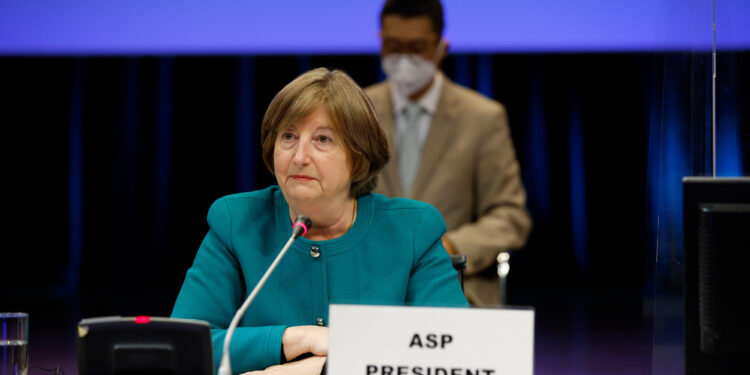By Thomas Verfuss in The Hague
Karim Khan QC, the Chief Prosecutor of the International Criminal Court (ICC), will have two deputies; at least one woman and one fluent in French.
This is assured by the election procedure announced on Monday by Silvia Fernández de Gurmendi, the President of the Assembly of States Parties (ASP) to the Rome Statute, the founding treaty of the ICC.
The ASP, with its 123 members, is the oversight body of the ICC, and also elects officials such as judges, the Prosecutor, and the deputy prosecutors. Khan expressed the wish to have two deputies when he took office in June.
Many consider it a good thing if there is at least one female deputy prosecutor: the Office of the Prosecutor (OTP) deals with gender-related crimes like rape, as well as internal problems of work culture, such as allegations of sexual intimidation. So, a mixed team heading the office is seen as beneficial.
And the case load of the ICC includes francophone African countries like Ivory Coast, Mali, and the Central African Republic. It is deemed advantageous if somebody in the leadership of the OTP is fluent in French, and from the Franco-Roman civil law system and not just the Anglo-Saxon common law system.
After speaking to candidates, Khan proposed two shortlists, one composed of female applicants and the other francophone, and asked states to choose one deputy prosecutor from each. However, it has emerged that some members of the Bureau of the Assembly of States Parties, the steering committee of the ASP, had wanted complete freedom of choice and rejected the two shortlists, which they considered an imposition. Reports said they had wanted just one list to choose from. From Judge Gurmendi’s announcement on Monday, it appears that Khan’s proposal had prevailed.
The candidates on Khan’s first list are Sylvia Domaradzki (Canada), Nazhat Shameen Khan (Fiji), and Paolina Massidda (Italy).
On the second list are Mame Mandiaye Niang (Senegal), Claudia Paz y Paz Bailey (Guatemala), and Alex Whiting (France).
Once the election of one woman and one francophone has been assured, there still remains concern about equitable representation of the various regions of the world. This is why list A and list B will not be voted on at the same time, but one after the other.
Before the voting later this week, lots will be drawn to determine whether the woman or the francophone are elected first. Once the result of the first vote is known, the states can take the country of origin of the first elected deputy prosecutor into account, making sure that during the election of the third OTP leadership team member, geographical balance among the regions and continents of the world is respected.
Previous story on the election of the deputy prosecutors:







